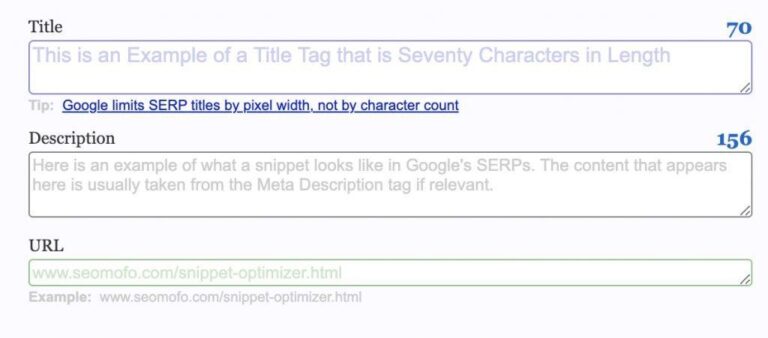Africa: The Algeria-Polisario Dynamic and Its Historical Implications – Sahel Intelligence
In the intricate landscape of African geopolitics, few stories are as convoluted as that of Algeria and the Polisario Front. At the heart of the ongoing contention over Western Sahara, this alliance serves as a compelling example of historical reinterpretation and deeply rooted national identities. As this region confronts the ramifications of colonial histories and territorial aspirations,both local populations and global stakeholders face unprecedented stakes. This article investigates the complexities surrounding this protracted conflict, highlighting how Algeria’s backing for the Polisario Front not only signifies a regional power struggle but also embodies a significant denial of historical, social, and cultural realities influencing Sahrawi ambitions. Through an analytical lens, we will examine themes such as sovereignty, self-determination, and their implications for stability in the Sahel.
Historical Background of the Algeria-Polisario Conflict
The roots of the Algeria-Polisario conflict lie in a multifaceted interplay of historical events that trace back to mid-20th century decolonization efforts. This dispute emerged from struggles over national identity,territorial claims,and sovereignty issues following Algeria’s liberation from French colonial rule in 1962. The establishment of the Polisario Front aimed to advocate for Sahrawi rights in Western Sahara against lingering colonial influences.Over time, this struggle has morphed into a geopolitical standoff primarily involving Algeria and Morocco with significant repercussions for regional peace.
To grasp this conflict’s historical context fully requires examining several pivotal factors:
- Colonial Influence: Arbitrary borders established during colonization have exacerbated tensions among diverse ethnic groups.
- Cold War Influences: While Algeria aligned itself with Soviet-backed liberation movements during this era, Morocco fostered relationships with Western nations.
- International Law vs Self-Determination: The right to self-determination for Sahrawi people remains contentious amid differing interpretations by various global entities.
| Date | Description |
|---|---|
| 1975 | The Madrid Accords were signed; they resulted in dividing Western Sahara. |
| 1976 | The Polisario Front proclaimed independence by establishing the Sahrawi Arab Democratic Republic (SADR). |
Impact on Sahrawi Society and Politics
Sahrawi communities continue to grapple with an enduring conflict centered around Western Sahara that has historically shaped their socio-political habitat. With influential players like Algeria supporting narratives through their alliances with Polisario Front leaders while facing numerous challenges themselves‚ÄĒthese dynamics substantially affect community identity governance structures‚ÄĒand social unity can be observed through various lenses including:
- Lack of Political Portrayal:A considerable number within these communities feel sidelined from international diplomatic dialogues leading to widespread disenchantment.
- Cultural Identity Struggles:The quest for autonomy has solidified community identity yet risks deepening divisions among different factions within it.
- Erosion Economic Stability:An extended period marked by conflict has stunted progress opportunities leaving many individuals economically vulnerable.
- Human Rights Issues:Cases concerning human rights violations persistently emerge affecting morale across affected communities.[source]
This socio-political landscape necessitates international involvement that recognizes past injustices while prioritizing Sahrawi aspirations moving forward towards reconciliation initiatives focused on fostering understanding between conflicting parties is essential given what’s at stake here below is an overview highlighting key milestones impacting these communities’ lives :
| Date | Description | Consequences |
|---|---|---|
| 1975 | Spanish exit from Western Sahara | Initiation phase regarding territorial disputes |
| 1988 | UN-mediated ceasefire discussions | Initial optimism surrounding potential peace |
| 1991 | Ceasefire agreement reached | Over three decades characterized by uncertainty |
| 2020 |
Renewed hostilities between Morocco & Polisairo front | |
Navigating these complex dynamics requires understanding both historical contexts while engaging meaningfully with those affected addressing political marginalization economic hardships alongside promoting human rights could pave pathways toward peaceful resolutions regarding long-standing conflicts ahead .
Pathways To Peace In Western Sahara
Achieving sustainable peace within western sahara demands extensive strategies acknowledging its intricate history whilst catering diverse interests involved parties foremost diplomatic engagement remains paramount encouraging morocco along side polisairo front come together facilitated impartial third party aiming mutually beneficial solutions strengthening united nations role crucial providing neutral platforms ensuring focus long term stability rather than immediate gains additionally fostering cooperation north african countries contribute creating supportive environments conducive productive talks
Beyond political maneuvers addressing humanitarian needs saharawi people could cultivate goodwill restoring trust amongst conflicting sides initiatives might include:
-
Humanitarian Assistance:
Increased support refugees camps promoting education health services -
Economic Initiatives:
Joint projects involving Moroccan saharawi stakeholders encourage collaboration mutual benefits -
Cultural Programs:
Fostering understanding reconciliation various regional communities
Implementing such strategies not only addresses immediate conditions population but also lays groundwork enduring resolutions aligning broader aspirations peace stability across Africa .
Looking Ahead
In summary ,the intricate relationship between algeria polisairo highlights often overlooked narratives shaping north african dynamics As both entities navigate contentious past present it becomes increasingly evident comprehending issue necessitates nuanced approaches considering grievances aspirations involved peoples ongoing western sahara conflict remains flashpoint influencing bilateral relations broader geopolitical considerations throughout sahel As international observers remain vigilant need resolution acknowledging contextual history promoting dialogue paramount future prospects hinge confronting legacies striving mutually acceptable paths forward .







